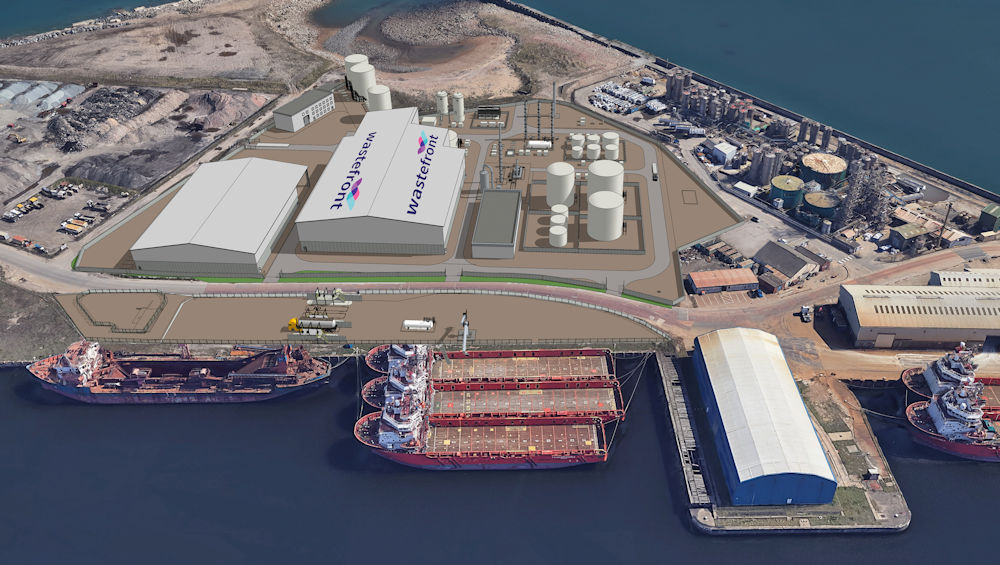IAG the owner of British Airways, has taken an interest in the Wastefront pyrolysis project, which could give them access to aviation fuel from recycled tyres
Through an advanced pyrolysis process, used tyres will be converted into tyre-derived oil, which will then be refined into Sustainable Aviation Fuel and road fuels. This initiative is poised to achieve over 80 per cent reduction in life cycle carbon emissions compared to traditional fossil fuels.
Expected to begin operations in 2026, the Sunderland facility will reach full capacity by 2027, processing up to 10 million tyres annually. With the UK generating around 50 million end-of-life tyres each year, this plant will offer a sustainable alternative to current practices, which often involve exporting tyres perhaps questionable treatment or disposal.
This facility aligns with the UK’s SAF mandate, implemented on January 1, 2025, which aims for at least 10 per cent of jet fuel used on flights departing the UK to be sourced from sustainable feedstocks by 2030, increasing to 22 per cent by 2040.
Jonathon Counsell, IAG’s Group Sustainability Officer, said; “We’re proud to support innovators like Wastefront, who are finding new forms of feedstocks to produce advanced fuels. However, as global demand for Sustainable Aviation Fuel (SAF) grows, it’s crucial to expand production in the UK. The recent Government mandate will help reduce aviation’s overall carbon impact, but airlines need confidence that the planned revenue certainty mechanism will support UK businesses in developing SAF
technology without further increasing the cost base for UK airlines.”

Vianney Valès, CEO of Wastefront, said; “At Wastefront, our mission is to turn a problematic waste stream into a highly valuable resource. We can create SAF at an extremely competitive cost with a very low environmental footprint – capable of reducing carbon emissions in the production process by up to 80 per cent compared to traditional jet fuels. This investment is a testament to the potential of Wastefront’s technology in tackling waste and air pollution.”
One of the challenges of any large-scale recycling facility is ensuring the stability of feedstock supply. In an unstable market, such as the UK, Wastefront has engaged the largest exporter of tyres from the UK, Dubai-based Gateway Resources.
The Sunderland plant will be constructed in phases, building to a total output of 32,000 tonnes of oil per year.
Once operational, Wastefront’s long term plan is to operate four such plants producing around 128,000 tonnes of oil annually.


















